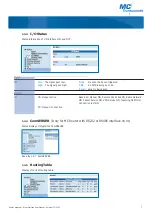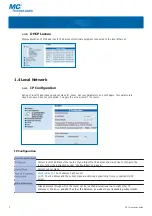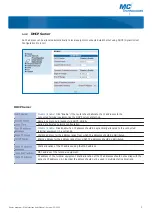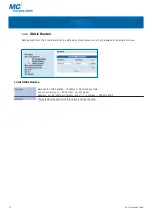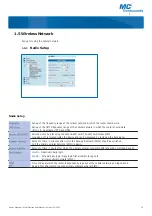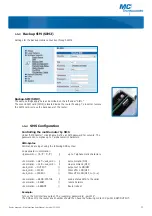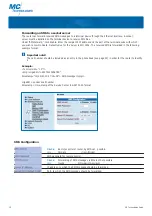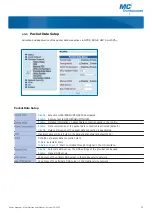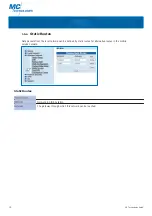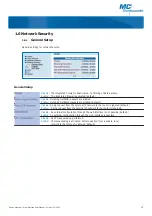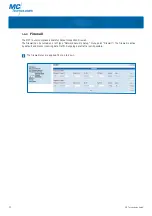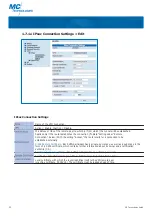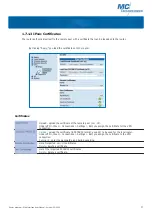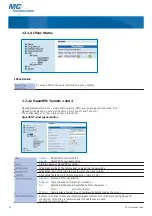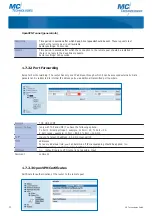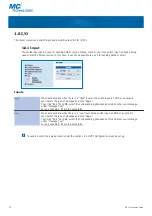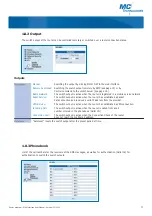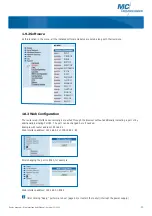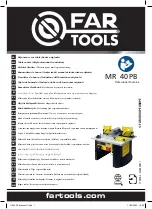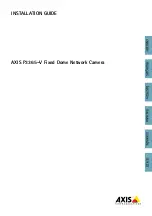
Router program - Web Interface User Manual - Version: 03/2014
21
Incoming Traffic
Protocol
From
Port To
Port
Log
Outgoing Traffic
Protocol
From
Port To
Port
Log
New
Action
From IP
To IP
New
Action
From IP
To IP
Firewall
TCP, UDP, ICMP, all
0.0.0.0/0 means all IP addresses. To enter an address range, use CIDR notation.
(only with TCP and UDP) You have the following options:
1.
direct port input - example: From Port = 20, To Port = 30.
2.
any - examples: From Port oder To Port = Any (Any means absolutely any port).
3.
Port range - example: From Port oder To Port = 80-90 (all ports from 80-90.)
Accept:
Pass data packets.
Reject:
Data packets are rejected.
Drop:
Data packets may not pass, the sender does not receive
notification. Logging firewall rules.
Yes:
Event is logged.
No:
Event is not logged (default.)
A
new firewall rule is added below the last rule.
Delete:
The rule is deleted.
Lists the set firewall rules. They apply to outgoing data connections initiated internally to communicate
with a remote peer
Factory settings: In the factory settings, a rule is set which allows all outgoing connections.
If no rule is set, all outgoing connections are blocked (except VPN).
TCP, UDP, ICMP, all
0.0.0.0/0 means all IP addresses. To enter an address range, use
CIDR notation.
(Only evaluated for TCP and UDP logs.) You have the following options:
1.
direct port input - example: From Port = 20, To Port = 30.
2.
any - examples: From Port oder To Port = Any (Any means absolutely any port).
3.
Port range - example: From Port oder To Port = 80-90 (all ports from 80-90.)
Accept:
Pass data packets.
Reject:
Data packets are rejected.
Drop:
Data packets may not pass, the sender does not receive notification.
Logging firewall rules.
Yes:
Event is logged.
No:
Event is not logged (default.)
A new firewall rule is added below the last rule.
Delete:
The rule is deleted.

